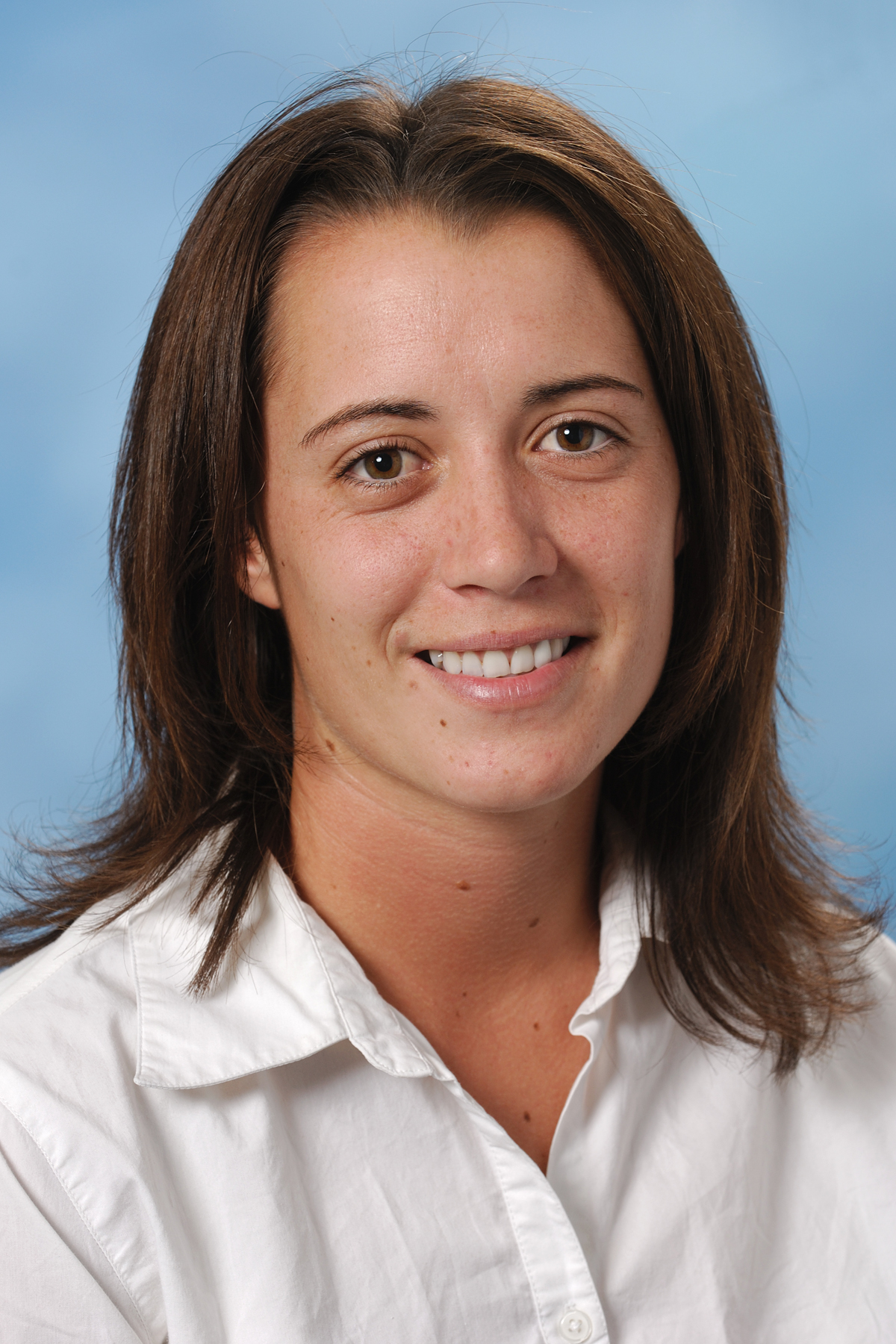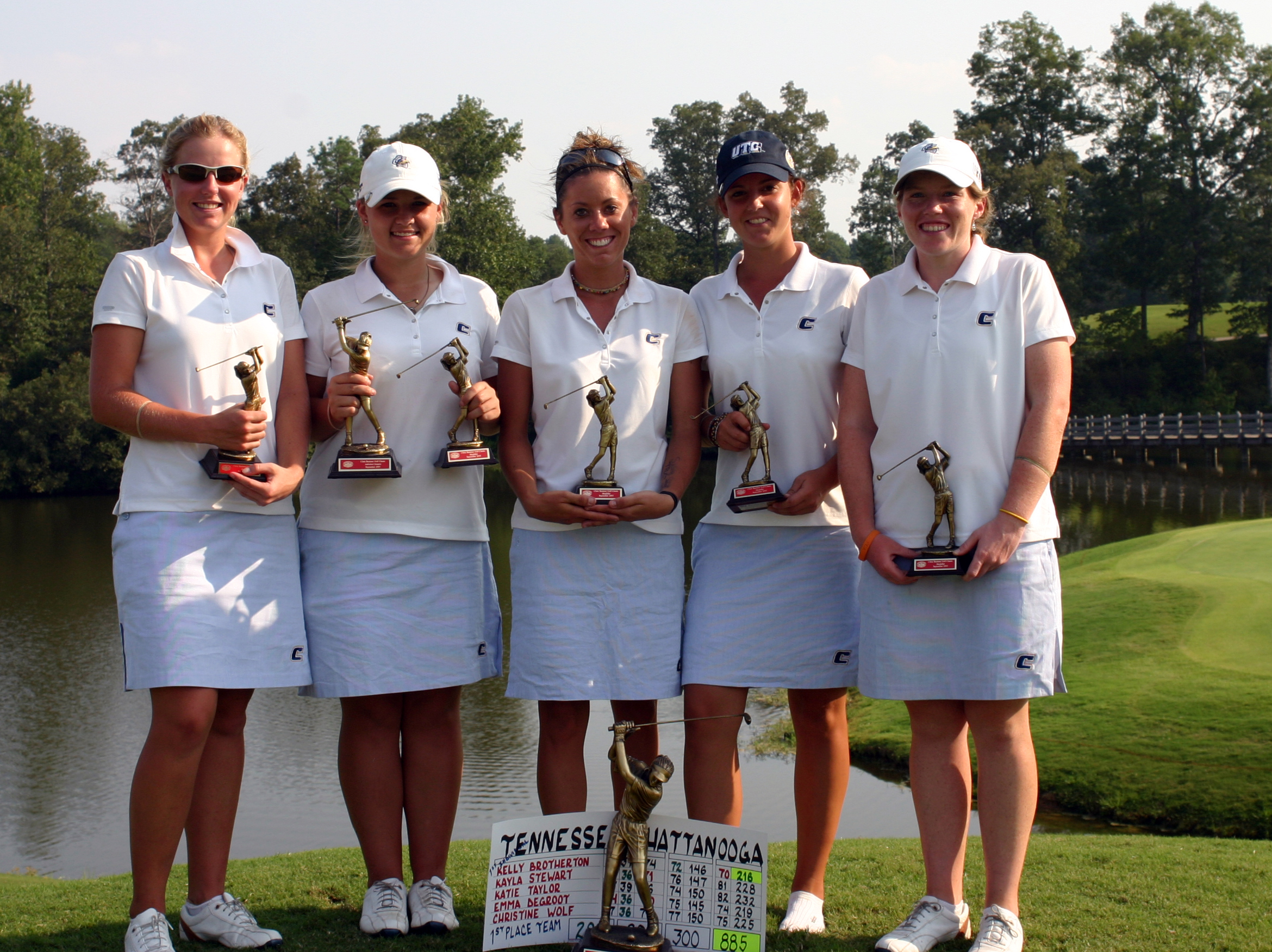|
"IF YOU LIKE GOLF"
online golf column
by
Chris Dortch

October 14, 2007
When Colette
Murray was hired to revive the long-dormant Tennessee-Chattanooga
women’s golf program in February 2006, she didn’t even have a desk
or a computer, let alone players.
Twenty months later, the Lady Mocs have
become a force to be reckoned with, having won their first three
tournaments and vaulting to a No. 49 national ranking after a
23-year layoff. How did Murray go from no desk and no players to
taking no prisoners? That’s a neat little story, and it begins at
the home of golf—Scotland.
Murray is Scottish, and like an ever-growing
number of female international players, she trekked to the United
States to play college golf, at Jacksonville State. She was such
an apt pupil for coach James Hobbs, who runs the Gamecocks’ men’s
and women’s programs, that she eventually became his assistant.
When Hobbs heard UTC was reviving its women’s program, he called
men’s coach Mark Guhne, who had some input in the hiring of the
new women’s coach, and recommended Murray, who at the time was
only 24.
|

UTC women's golf coach
Colette Murray |
If anyone at UTC was worried about Murray’s
age, those concerns were quickly dashed by the energy, enthusiasm
and confidence she brought to the interview process. Asked whether
she thought the Lady Mocs could contend in the Southern
Conference, Murray said she had bigger targets in mind.
“My goal is to be in the top 20,” Murray
said.
That brash proclamation got her the gig. With
two fall tournaments to go, she’s 29 spots away from her goal.
Fittingly enough, the first player to buy
into Murray’s rebuilding plans was Scottish, and Murray’s age was
a factor. She used to compete against Kelly Brotherton in Under 21
tournaments in Scotland, and when Brotherton found out from her
parents that Murray was starting a program in Chattanooga, she
immediately wanted to become a part of it. Brotherton had played
her freshman year at Colorado State, but during the course of a
long, snowy winter there, she had plenty of time to question her
choice of schools while her clubs were in dry dock. Brotherton
wanted warmer climes, and the opportunity to play for a fellow
Scot was too good to pass up.
Like her teammates, Brotherton jumped out to
a great start this season, winning the Chris Banister Gamecock
Classic at Jacksonville State. Her stroke average of 74.75 is
second on the team.
During her year and a half without a team to
coach, Murray played in as many amateur events as she could,
reasoning that she might run into a player or two while she was
competing. She found Kayla Stewart at the 2006 Tennessee Amateur.
Or rather, Stewart found her. Stewart, from Cookeville, Tenn.,
played her freshman year at Memphis, but like Brotherton, was
unhappy.
“When I first met coach Murray, the goals she
talked about for her team where the same goals I had in mind,”
Stewart said. “Just to hear her talk, you could feed off her
enthusiasm. I knew she’d get good players in here and that we’d be
good right off the bat.”
Stewart’s weakness before she came to
Chattanooga was putting. With Murray’s emphasis on short-game
practice, Stewart has become one of the nation’s top putters and
has a tie for ninth, a tie for sixth and a tie for 13th
to show for it in her first three tournaments.
Murray’s next player acquisition came as a
result of her Jacksonville State ties. A former player on the
men’s team who’s from Australia told her about Emma de Groot, an
emerging young player from his homeland that no one knew about.
“She wasn’t playing in the huge tournaments,”
Murray said. “It’s not because she wasn’t good enough. She just
didn’t play in them.”
De Groot begs to differ with her coach.
“I really didn’t start getting good until I
was about 18,” said de Groot, a multi-sport athlete who
reluctantly dropped soocer and basketball to focus on golf. Once
she began studying the swing under a coach who includes LPGA star
Karrie Webb among his pupils, de Groot began making rapid
improvement.
That’s carried over to U.S. college golf—de
Groot has finished second in all three of the Lady Mocs’
tournaments.
“She’ll win one soon,” Murray said. “It’s
been funny; so many coaches have come up to me and said ‘How’d you
get her?’ ”
On a trip home during the summer of 2006,
Murray spotted Christine Wolf, a native of Austria, in a junior
tournament and loved her course demeanor and short game. Wolf’s
goal was to play college golf in the U.S., and she too was
impressed by Murray’s bold talk of how high the program can climb.
Wolf finished fifth in her first tournament and has two other top
13 finishes.
Murray also had a recruit from Sweden lined
up, but when she decided not to come, Murray switched into
scramble mode. She had just four players but needed five to
compete. Luckily, she found sophomore Katie Taylor, who played for
Tennessee Tech last year. Like Brotherton and Stewart, she was
unhappy with her first choice of schools, so she transferred and
was immediately eligible. Taylor tied for 14th in her
first tournament and has proven to be much more than an 11th-hour
fill-in.
“I’d have been in trouble without her,”
Murray said. “She’s a good player who’ll get better because she
works so hard.”
Once Murray got her team together in August
and began practicing, she had an idea she might have something on
her hands. So when the Lady Mocs won their first three
tournaments, Murray wasn’t the least bit surprised.
“I don’t want to sound cocky or anything, but
I knew they were good,” Murray said. “So to be honest, I did think
we could win our first three tournaments. I thought we could come
out and have an immediate impact.”
How’s this for an impact? Golfweek has
chosen Chattanooga its team of the week twice this season, an
honor matched only by Duke, perhaps the top program in women’s
golf.
Murray has rubbed shoulders with Duke in more
ways than one. She was befriended by coach Dan Brooks at her
first-ever National Golf Coaches Association convention and later
bonded with him in hurricane-batted New Orleans, helping Habitat
for Humanities build new homes.
“I said if I ever need anything, just to call
him,” Murray said. “And Martha Freitag [the Texas coach] has said
the same thing.”
Murray also credits Guhne, who has made his
own impressive progress with the Chattanooga men’s team, with
helping her along the way.
“You think she’s gotten everybody’s attention
around the country?” Guhne said. “I’m not sure I’d have told you
they would win their first three tournaments, but I expected
Colette to be successful. She’s a hard worker, a great recruiter,
understands the game of golf and relates well to her players.
She’s got the whole package. UTC women’s golf will be a factor
nationally as long as we can keep her here.”
|

49th ranked UTC Lady Mocs
From left, Emmade Groot, Kelly Brotherton,
Kayla Stewart, Christine Wolf, Katie Taylor |
---
Keeping on the subject of UTC golf, sophomore
Derek Rende had such a big lead in the ZCup Standings he didn’t
even need to play in the Chattanooga TPC to secure city
Player-of-the-Year honors. He finished with 281 points, 58 ahead
of TPC winner Josh Coley.
The award is just another line on Rende’s
rapidly expanding golfing resume that includes winning the
Tennessee Open last May and playing in the U.S. Amateur in August.
He’s currently the 20th-ranked player in Division I.
###
*** Feedback ***
click here to give me your comments about this article,
or suggest a subject for a future article
|